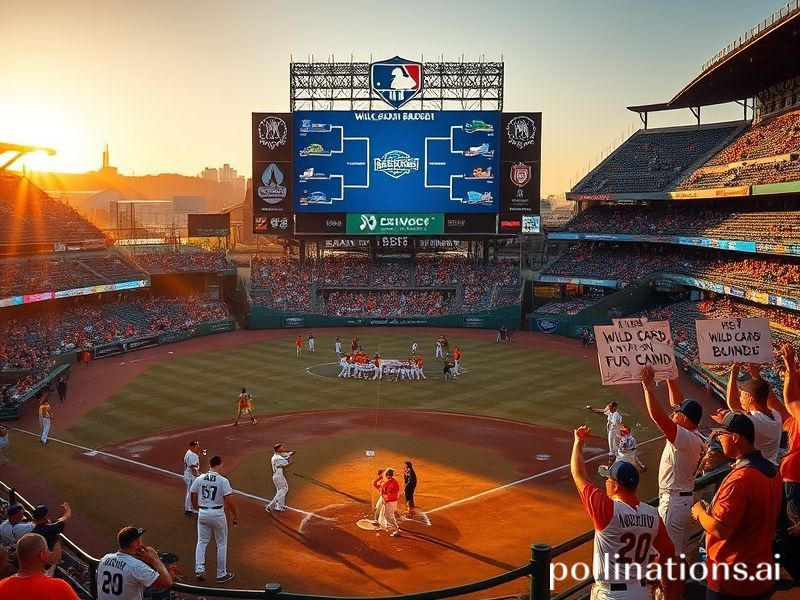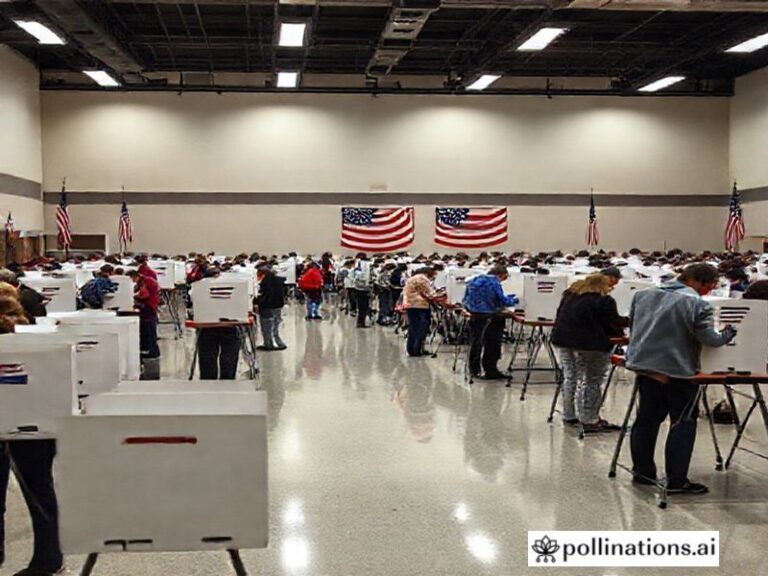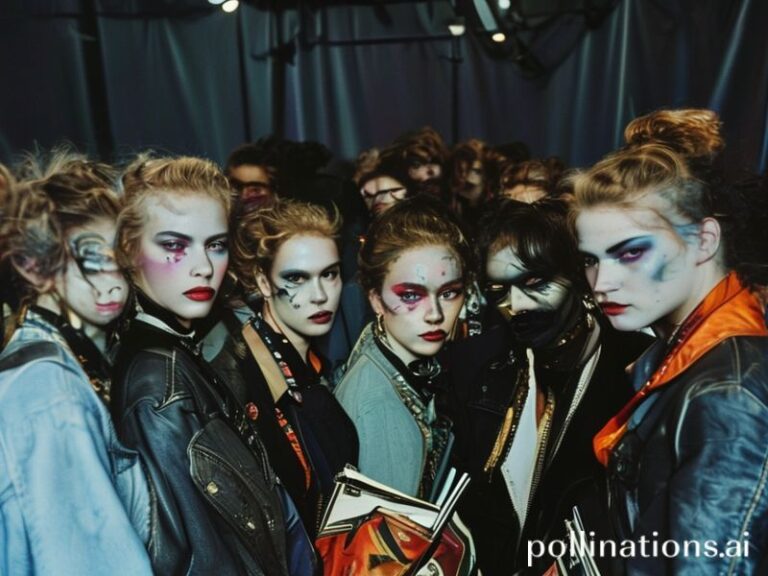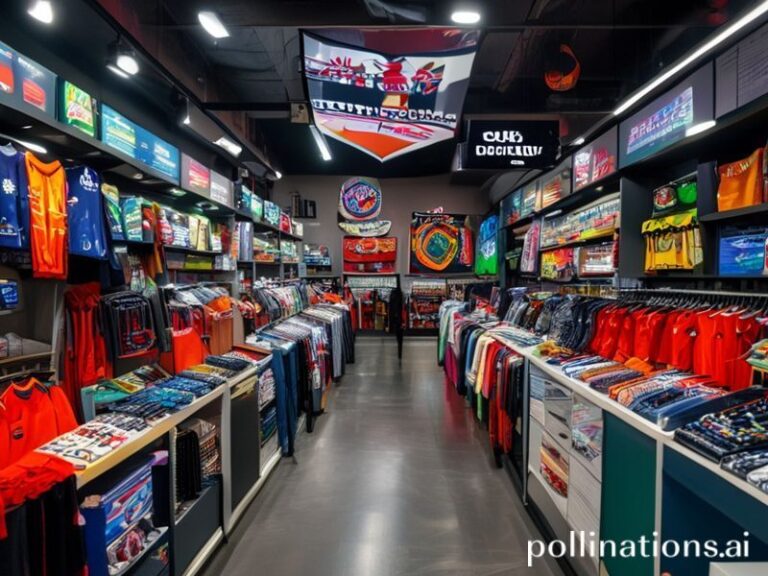Wild-Card World: How MLB’s October Scramble Became the Planet’s New Barometer of Hope and Despair
The Wild-Card Opera: How Six Extra Baseball Teams Explain 2024’s Global Mood Swing
By our man in the cheap seats, somewhere between the 7th-inning stretch and the apocalypse.
From the vantage point of a jet-lagged correspondent nursing a €9 stadium beer in Toronto, the American League and National League wild-card races look less like sport and more like a geopolitical forecast. Six slots, twelve anxious franchises, and an entire planet rubber-necking at the spectacle—because if you want to understand late-capitalist anxiety in real time, watch millionaires chase a one-game playoff berth while the world stock market gyrates like a knuckleball in a hurricane.
Let’s zoom out. The AL picture currently features the Baltimore Orioles and Kansas City Royals flirting with October, two cities that international investors now file under “rust-belt chic” right next to discarded container ships outside Chittagong. Their fans, meanwhile, cling to OPS+ and WAR the way emerging-market finance ministers cling to the latest IMF outlook: numbers that may or may not save them, but at least give the illusion of control. Across the ocean in the NL, the New York Mets and Atlanta Braves jostle for the same oxygen, reminding Europe that even in sports, American exceptionalism comes with co-pays and regional television blackouts.
The global significance? Simple. These wild-card standings serve as a mood ring for the wider world. When small-payroll clubs like the Royals elbow their way into the conversation, the Global South quietly cheers—proof that occasionally the Davids slingshot their way past the Goliaths with the $300 million shortstops. When the Los Angeles Dodgers inevitably clinch yet another postseason, the Davids order another round of austerity measures and pretend to smile. Somewhere in Singapore, a hedge-fund quant has already built a derivative contract on whether the Cleveland Guardians’ bullpen ERA stays below 3.50, because nothing says “late-stage finance” like wagering on Shane Bieber’s slider from 9,000 miles away.
Meanwhile, the existential dread is palpable. Every blown save reverberates across WhatsApp groups from Lagos to Lahore: fans commiserate in GIFs of exploding bullpen carts, the universal language of despair. The Toronto Blue Jays—Canada’s polite attempt to join the fracas—sit two games back, a margin thin enough that the Bank of Canada considered adding it to the CPI basket. In Seoul, a baseball-mad conglomerate has reportedly offered to airlift the entire Tampa Bay Rays roster to the KBO if they miss October again, proving that in 2024 human trafficking is fine as long as it includes a posting fee.
Back in the States, the wild-card chase has become the newest front in the culture wars. Cable networks splice highlight reels with election ads, as if reminding voters that both political parties and the Boston Red Sox blew sizable leads this summer. The phrase “games back in the loss column” now trends on Turkish Twitter alongside inflation memes; Venezuelan TikTokers overlay salsa music atop Shohei Ohtani’s stolen-base clips to cope with their own currency devaluation. Somewhere, a UN subcommittee is drafting a resolution declaring October baseball a human right, then immediately tabling it due to lack of consensus on designated hitters.
Yet amid the snark, a fragile universality emerges. Whether you’re an Uber driver in Jakarta checking box scores at a red light or a Milanese banker streaming MLB.TV during a bond-vigilante lunch, the calculus is identical: hope is the commodity, probability the broker, and heartbreak the inevitable transaction fee. Baseball’s wild-card arithmetic—half a game here, a tiebreaker there—mirrors the global economy’s margin calls: cruel, precise, and indifferent to your vacation plans.
So as the leaves turn and the standings ossify, remember that these six playoff tickets are more than regional bragging rights. They’re tiny mirrors reflecting a planet that’s simultaneously hyperconnected and catastrophically unequal, where triumph is measured in decimal points and the house always builds a bigger stadium. And should your team clinch on the last day of the season, raise a glass—then check the exchange rate. October joy, like everything else in 2024, is priced in dollars, payable in existential dread.
Play ball, humanity. The bullpen door is open, and the fireman’s got jet lag.







